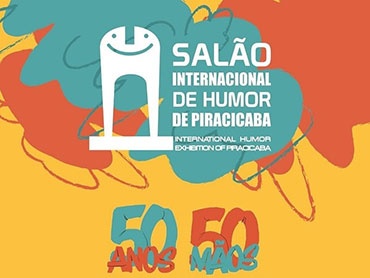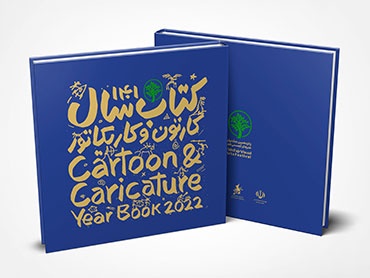Interview

Interview with Massoud Shojai Tabatabai
Interview with Massoud Shojai Tabatabai
LATAMARTE: Mr. Shojai Tabatabai, to begin, could you tell us what led you into the world of cartoon and caricature?
Shojai Tabatabai: As a teenager, I became familiar with the satirical magazine “Tofiq.” Its sharp wit and social critique left a deep impression on me. Combined with my passion for drawing, this exposure slowly drew me into the world of cartooning. I realized that a simple image could provoke thought, raise awareness, and challenge injustice—all without a single word.
LATAMARTE: You’re known for your socially committed stance. What does “commitment” in art mean to you?
Shojai Tabatabai: Artistic commitment means standing beside the people when they suffer, using your art not just for beauty, but for truth. I’ve never believed in neutral art. Every line must mean something. To be committed is to not look away when there’s injustice. Art must speak where silence becomes complicity.
LATAMARTE: Your work on themes like Palestine, Gaza, and terrorism is widely known. Why are these topics so central to your art?
Shojai Tabatabai: Because they are not just political topics—they’re deeply human. The suffering of children in Gaza or victims of global injustice cannot be ignored. As an Iranian artist and a Muslim, I feel responsible not to stay silent in the face of cruelty. These works are not mere illustrations; they are visual protests.
LATAMARTE: You've organized numerous international exhibitions. How do you see your role in nurturing new talent?
Shojai Tabatabai: Through platforms like Iran Cartoon and international contests, I’ve seen unknown artists rise and find audiences. That’s one of my greatest joys. We need to ensure that cartoonists from places without visibility can share their voice globally. Art should be borderless.
LATAMARTE: Has there ever been a drawing that moved you emotionally as you created it?
Shojai Tabatabai: Absolutely. One of my most emotional works depicted children trapped under rubble in Gaza. I couldn’t stop crying while drawing. It felt like I was there. That moment changed how I viewed my role as an artist.
LATAMARTE: How has your understanding of satire changed over the years?
Shojai Tabatabai: I once saw satire as entertainment. Over the years, I realized that it’s a weapon—sharp, intelligent, and humane. Satire, when used wisely, can question authority more effectively than loud slogans.
LATAMARTE: Finally, what message would you leave for future generations of cartoonists?
Shojai Tabatabai: Let your art reflect your people—not just your ego. Let your lines echo the unheard. Because art, at its best, is the silent scream that cannot be ignored.

Massoud Shojai Tabatabai
Massoud Shojai Tabatabaei is a prominent Iranian cartoonist and curator with a distinguished international career. Born in Tehr ...


- February 14, 2026
Remedios Varo and the Enduring Legacy of Her Art in Mexico

- February 14, 2026
Urban and Street Art

- February 14, 2026
Art as the Awakening of the People

- February 14, 2026
Epstein Earthquake

- February 14, 2026
Political puzzle

- February 14, 2026
Latin America in Caricature by John J. Johnson

- February 13, 2026
Michal Batory Posters

- February 12, 2026
WAR AGAINST WAR | Photography and World War One

- August 15, 2025
Interview with Kamal Sharaf

- June 05, 2025
When the Wall Breathes: Interview with …

- May 20, 2025
Imaginary Interview with David Alfaro S…

- May 11, 2025
Interview with Massoud Shojai Tabatabai

- March 25, 2025
Imaginary Interview with Sergio Aragonés

- March 24, 2025
Imaginary Interview with Ángel Boligán

- March 07, 2025
Imaginary Interview with Cau Gomez – Th…

- February 15, 2025
Imaginary Interview with Thomas Fluharty

- December 06, 2024
Interview with Pablo Picasso about "Dov…

- November 01, 2024
Imaginari Interview with Master Zirlado

- October 21, 2024
An Imaginary Interview with Frida Kahlo

- October 10, 2024
Interview with Diego Rivera: A Master o…

- September 14, 2024
Governments are afraid of the visual ar…

- August 23, 2024
A Hypothetical Interview with Claude Mo…

- July 27, 2024
An Imaginary Interview with Auguste Rod…

- June 20, 2024
Art and the deepest part of the human s…

- June 16, 2024
A Candid Conversation with Fernando Bot…

- June 12, 2024
Eduardo Costantini revolutionized Latin…

- May 18, 2024
An Interview with Michelangelo

- April 26, 2024
An Imaginary Interview with Caravaggio …

- March 07, 2024
An imaginary interview with Van Gogh ab…

- August 15, 2025
Interview with Kamal Sharaf

- May 11, 2025
Interview with Massoud Shojai Tabatabai

- February 11, 2024
imaginary interview with van gogh,befor…

- October 21, 2024
An Imaginary Interview with Frida Kahlo

- February 02, 2024
Interview with a Ghost: Banksy Speaks

- October 10, 2024
Interview with Diego Rivera: A Master o…

- February 08, 2024
interview with pablo picasso, imaginary

- July 31, 2023
Interview with Professor John A. Lent

- May 20, 2025
Imaginary Interview with David Alfaro S…

- February 01, 2024
interview with Ralph Steadman , great a…

- February 15, 2024
imaginary interview with Honoré Daumier

- August 23, 2024
A Hypothetical Interview with Claude Mo…

- March 24, 2025
Imaginary Interview with Ángel Boligán

- December 06, 2024
Interview with Pablo Picasso about "Dov…

- March 07, 2025
Imaginary Interview with Cau Gomez – Th…

- April 18, 2024
An Imaginary Interview with Paul Cezanne

- March 31, 2024
An Interview with Edgar Degas: Capturin…

- June 05, 2025
When the Wall Breathes: Interview with …

- February 14, 2024
imaginary interview with Leonardo da Vi…

- February 08, 2024
interview with pablo picasso, imaginary

- October 21, 2024
An Imaginary Interview with Frida Kahlo

- March 07, 2024
An imaginary interview with Van Gogh ab…

- February 10, 2024
interview with mordillo ,master of smil…

- February 14, 2024
imaginary interview with Leonardo da Vi…

- December 06, 2024
Interview with Pablo Picasso about "Dov…

- October 10, 2024
Interview with Diego Rivera: A Master o…

- March 02, 2024
An imaginary interview with Salvador Da…

- February 02, 2024
Interview with a Ghost: Banksy Speaks

- February 11, 2024
imaginary interview with van gogh,befor…

- February 01, 2024
interview with Ralph Steadman , great a…

- August 23, 2024
A Hypothetical Interview with Claude Mo…

- June 12, 2024
Eduardo Costantini revolutionized Latin…

- July 30, 2023
“Cartoons give us another reality of cu…

- May 18, 2024
An Interview with Michelangelo

- November 01, 2024
Imaginari Interview with Master Zirlado

- April 26, 2024
An Imaginary Interview with Caravaggio …

- June 16, 2024
A Candid Conversation with Fernando Bot…

- July 30, 2023
An Interview with Italian Artist Cristi…

- June 05, 2025


